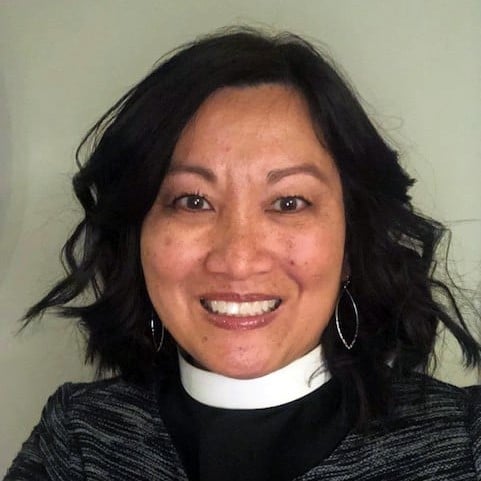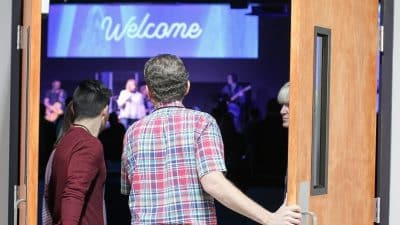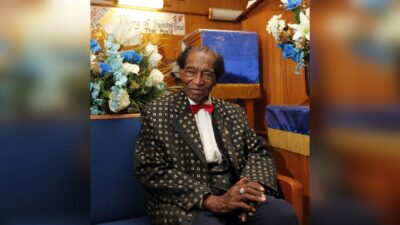Laura Hepker, a 50-year-old single IT manager, said she felt like a unicorn in the evangelical Christian circles in which she was raised. “The structures of the church,” she said, “are very much designed for family.”
Data suggests Hepker is anything but a unicorn. Almost half of American adults are now single (including the widowed and divorced), and a thought-provoking Valentine’s Day-themed Pew Research Center study a few years ago suggested that the majority of unmarried men and women aren’t looking to date (and if they are, it’s complicated).
Meanwhile, many churches suffering a decline in attendance tend to focus on traditional families. Studies have shown that parents choose churches with their children’s Christian formation in mind, and many pastors are charged with providing ministries that attract these parents to help their congregations survive in an increasingly secular culture.
The emphasis on family ministry, however, is stuck in the demographics of midcentury America, when houses of worship were thriving. “The church model that worked in 1960 doesn’t work anymore,” said Peter McGraw, a professor of marketing and psychology at the University of Colorado at Boulder and author of the recently published “Solo.”
In an environment where churches are hoping to attract and retain members, McGraw argues, “Why do anything that marginalizes a large group of your congregation?”
Your tax-deductible gift helps our journalists report the truth and hold Christian leaders and organizations accountable. Give a gift of $30 or more to The Roys Report this month, and you will receive a copy of “Hurt and Healed by the Church” by Ryan George. To donate, click here.
McGraw advises churches to look closely at their demographic. Singles, he said, are more prone to be involved in their communities. “If your goal is to build community, recognize the ways that singles are involved in building community. It’s not a dramatic shift, but it requires a shift for people to feel like they belong.”

That includes, he suggests, not only creating inclusive congregational groups, but details like making sure that promotional materials such as emails and newsletters target everyone.
Evangelical churches seem to be the most dedicated to pursuing families as members — or creating families out of their unpaired members.
Katelyn Lettich, a 28-year-old director of the evangelical Christian organization Young Life, said it seems as if the best the churches she has attended can offer young single members is dating opportunities. She advocates putting more unmarried people on church boards and planning committees to make sure singles’ voice are heard, but also to signal that they are as welcome as marrieds. “Invite single people into normal spaces,” said Lettich.
Younger singles aren’t the only ones looking to be included. Lindy Dimeo, 68, a retired crisis pregnancy center director, is a member of Blue Ridge Community Church, a small evangelical church near Charlottesville, Virginia. Dimeo and her husband played in the worship band together, but after he died, she took a few months off. “At the time it was hard living a single life in a family-oriented culture.”
But she said that it’s possible to grow into a churchgoer in one’s own right. Almost 20 years after her husband’s death, Dimeo said: “It would be nice to have somebody special, but it doesn’t impact my life at church anymore. My church is a very close community.”
Mainline Protestant churches also have room for improvement, said the Rev. Jennifer Schultz, pastor of Bethlehem Lutheran Church in Los Alamitos, California.

Schultz is divorced and said her congregation, largely retired adults, has never known her as anything but single. It has never been an issue, she said: “We provide a space for single people, but don’t dwell on it, and don’t make them feel any different.”
But Schultz believes Christian communities are playing catch-up when it comes to welcoming singles, whether young adults, widowed or divorced. “One of the gifts of the church is that it has the potential to be a community for a variety of people. But I do think maybe we’re kind of behind the ball on that.”
McGraw suggests congregations reevaluate their tactics to redefine “family” to include broader feelings of community.
Until moving to a new church a few months ago, Kenny Champagne, 39, ran a large young adult ministry at a multicampus congregation in northern Virginia.

Most of his charges, who ranged in age from early 20s to upper 30s, were single, he said, but he added, “I don’t think any of them got involved in the ministry with the idea of looking for a significant other.”
One of the primary aims of the group was nurturing friendships and a sense of community, he said, instead of trying to pair them up.
There are signs that some churches are intentionally forming with all types of members in mind.
About three years ago, Hepker made her way to The Table, an Episcopal congregation in Indianapolis that she described as “one of the more relaxed and accepting churches I have ever attended.” At The Table, a multigenerational congregation, “you’re just accepted for being a person, and not for your marital or relationship status,” she said.
Nathan Baker, 33, another evangelical who found his way to The Table after a period of “deconstructing” his faith, said he grew up with the expectation that a full life would involve marriage and a “godly family.”
Now on the vestry at The Table, he said single people are part of the fabric of the social and discipleship groups. “While God intended us to be in relationship with other people,” said Baker, “the pinnacle experience of that isn’t marriage, it’s vulnerable community life together.”
Lettich said that, more than being OK, singlehood ought to be seen as “a gift.”

“There is something very cool about this time of life,” she added. “I can truly invest in God and the people around me. I’m actually content. I’m not just pining for my next relationship.”
While many people don’t take her at her word, she said, “I think the church is coming around to the idea that single people hold value. They’re not just waiting for marriage, and they don’t have to be waiting for marriage to be a pillar in the church or to be treated as an equal partner, in ministry or in life.”
For those concerned Christians who ask uncoupled friends why they are still single, Lettich has a pithy riposte: “The Bible says not one thing about dating.”
Elizabeth E. Evans is a contributor to Religion News Service.




















13 Responses
Church ministries/involvements are often very ‘niched’: married couples, parenting groups, men’s Bible studies, divorce recovery, and singles’ ministries. For people who do not fit neatly into many groups, it can lead to exclusion. Why not have more groups that are prayer groups, groups studying Bible book x, rather than grouping people by marital and child status? Many singles have stopped attending evangelical churches because there are few ways for them to participate.
Good article. I’m blessed to attend a church where marital status is largely a non-issue. Too many American congregations, however, still subscribe to the notion that one becomes an adult upon having a job, a house, and a spouse. The unmarried are then presumed to be less mature, responsible, or willing to fulfill long-term commitments. Or likely to be transient and searching for dates or mates.
When the unspoken and unwritten default for “normal” is married, churches ignore talented singles as volunteers and leaders in ministry. We’ll be more effective in reaching our communities with the gospel when we engage the spiritual gifts of all believers instead of relying primarily on the 4M Club — middle-aged and married with a mortgage and a minivan [children].
When I lost my husband several years ago, I just assumed that I would continue on at my 170 member evangelical church. “We are a family,” was often preached from the pulpit and at first, that seem to be the case. But, as the weeks and months went by, it became apparent that I, as a widow, was no longer valued as a person there. In fact, I remember joking with a friend that the only two things I was allowed to do at church anymore was write checks and keep my mouth shut. As much as I loved that church, I eventually left. It still breaks my heart.
“Keep your mouth shut” is THE message that evangelical churches have for all female humans….%50 of the human race. At 50 yrs of age, I left church one Sunday and I have never been back. I will never go back. They are an entire corporate group of abusers. Arrogance is their primary id, NOT Jesus. Not Love. Did I leave Jesus? NO. He was not in that place, no matter how beautiful the songs and sermons, etc….there was no actual LOVE. I have grown closer to Jesus, and I am able to actually share his real love with hurting people. God did not design that version of “church.” I do not believe that he EVER purposed that anyone would become “a professional Christian.” I believe that the “church” will soon lose its tax-exempt status…as it should…and these grandiose country club groups of gossiping, oppressive, judgmental folks who have withdrawn from the pain of their actual neighbors will cease to exist. Finally. Then, the wheat will begin to be separated from the tares.
I’ve been single for the last two years and I find church to be the most uncomfortable time in each week. I find myself staying home to watch online if I’m not volunteering that week. It’s not what I want, but I’d rather be home alone than lonely in a crowd.
Haven’t we had enough corporate style marketing & growth strategies by now to know that isn’t actually Christianity?
Here’s an idea… why don’t we follow the blueprint in the book of Acts instead? And when Jesus shows up in power we won’t need to worry about who’s single and who’s not. We’ll be too busy baptizing new believers to be focused on ourselves.
Troy, yours is the best response yet. This issue sharply exposes the ME-centered “gospel” that pervades most modern churches. “How do I look?” “How do I fit in?” “What’s in it for MEEEEE!!!!!!”
As a middle aged single and childless woman, there are no words to say how much damage the family/marriage focus of organized religion have done in my life in addition to doing nothing to help with the other challenge I have faced in my life.
God blessed me with a mother who decided to read the Bible for herself and the “more she read the Bible the less she wanted to go to church” and discovered that “what was in the Bible was not taught, and what was taught was not in the Bible”. She taught me what God taught her and growing up my family was in and out of several building and home churches before Mom left church, but not God, for good.
Around the time Mom left church, a series of circumstances kept me away from church for three years and in that time my faith became real to me, not something expected of me. When I tried to return to church I discovered the truth for myself of what Mom taught me and that I was an outsider in the church as a single, childless woman. When I asked God to give me a husband or make me content to be single, he not only gave me mostly contentment to be single, but set me free from the chains of patriarchy. I left church, but not God. God promoted Mom to heaven two years ago and now I have no strong believers nearby to fellowship with. I am mostly alone right now but God loves me and has not abandoned me.
@Susan Patton-Agree with your post 100%. Thank you for sharing.
@ Jane King-So sorry for the loss of your husband and church.
Katia, so sorry for the loss of your Mom.
When my husband left the marriage years ago by breaking all vows, after I forgave him and tried everything to save the marriage, after he sued for divorce, many of my mentors and best friends who were leaders in various churches blasted me for allowing the divorce. This is complete crazy making. The church was not designed to protect the wolves, the abusers and the systemic nonsense!
It’s a miracle my relationship with Jesus, God, Spirit is thriving outside of systemic abuse that is snowballing out of control within religious organization’s walls. And yet, it makes sense that it would be thriving!
The corporate church and God are two very different things and (knowing the corporate church is what it is) that is an excellent thing.
Great article & fantastic comments. I experienced the full spectrum of treatment during & after a divorce. Grace was abundant in most settings, grace-less people often haven’t a clue and often reacted as if I were a leper. In the early going I was very lonely it seemed but I quickly found that if I wanted to have friends I would have put forth effort into being friendly. Very hard to do when my emotions drove me to isolate myself. I was blessed with three close friends who encouraged me on a daily basis, no topics were off limits and there was for the first time in my life complete accountability in our relationships. We too saw the hypocrisy of the married folk selectively avoiding eye contact with the single folks. It changed when single people started serving on various committees, leading groups that had married individuals in them, etc.
That is when we began to see the pain in so many marriages, pain that didn’t have to be , but because of all the usual reasons , it was.
I don’t sense a separation in the church I attend and that is a much needed encouragement……but I do measure how much I want to invest in a few relationships……..call me gun shy
Kind regards,
Kevin Burditt
I would have never believed lack of eye contact phenomenon if I hadn’t experienced it personally. It is crazy and crazy making.
There are so many truths in the comments above from people who have experienced pain and not love in church.
A mega church I no longer belong to decided to celebrate Mother’s Day for church attending families – to the total exclusion of the rest of the congregation which consisted of childless women, women who were grieving over the loss of a child, couples without children, couples struggling to conceive and many whose mothers were deceased.
It was a worldly selfish show by the church leadership that made me physically sick to the stomach.